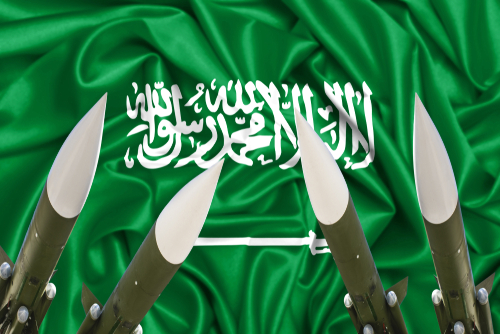
U.S. Sens. Edward Markey (D-MA) and Jeff Merkley (D-OR) introduced legislation that seeks to restore oversight of Saudi Arabia’s nuclear capabilities and impede access to technologies that could pave the way to Saudi Arabia’s first nuclear weapon.
The Stopping Activities Underpinning Development in Weapons of Mass Destruction (SAUDI WMD) Act would require a presidential determination as to whether any “foreign person” has knowingly exported, transferred, or engaged in trade with Saudi Arabia in a Category 1 MTCR item. If so, the president would impose non-discretionary sanctions on those “foreign person(s). It also calls for the termination of most U.S. arms sales to Saudi Arabia if it has received assistance in constructing a nuclear fuel cycle facility not safeguarded by the International Atomic Energy Agency (IAEA). Further, it would require the State Department to produce a strategy to prevent the proliferation of missile and nuclear technology to the Middle East and North Africa.
“We must take Saudi Crown Prince Mohammad bin Salman at his word that the Kingdom will seek a nuclear weapon if Iran develops a bomb of its own,” Markey said. “There is ample, concerning press reporting that Saudi Arabia may have illegally acquired items related to a program to build nuclear-capable missiles. The Saudi WMD Act shines a spotlight on these reported activities, requires greater transparency into Saudi Arabia’s efforts to build a civilian nuclear program, and ends the sale of U.S. offensive weapons to Saudi Arabia if it has conducted clandestine nuclear activities. We need to take every possible step to prevent a nuclear arms race in the Middle East.”
At a Senate Foreign Relations Committee Hearing in September on the Middle East, Markey pressed the State Department’s Under Secretary of State for Political Affairs David Hale for answers on news reports that Saudi Arabia has conspired with China to build a ballistic missile production facility.
“Nuclear weapons in the hands of terrorists and rogue regimes is one of the gravest threats to the security of the American people, and so the agreements limiting the spread of those technologies are critically important,” Merkley said. “We must be prepared to enforce these agreements and act in response to any actions that dangerously spread this technology, including by imposing sanctions and terminating arms sales. If Saudi Arabia is working to undermine the global nonproliferation and arms control regime, with the help of China or anybody else, the U.S. response must be swift and strong.”
In February 2019, Markey and Sen. Marco Rubio (R-FL) introduced a bill that increases Congressional oversight over any civil nuclear cooperation agreement – known as a 123 agreement — between the United States and Saudi Arabia. The bill, the Saudi Nuclear Nonproliferation Act, would require Congress to affirmatively approve any 123 agreement with Saudi Arabia as opposed to submitting a resolution of disapproval.
“The Trump administration’s blank check approach to the U.S.-Saudi Arabia relationship has only served to increase instability in the Middle East. From the civil war in Yemen to the murder of journalist Jamal Khashoggi, Saudi Arabia’s actions warrant greater scrutiny,” Louie Reckford, policy advisor, Foreign Policy for America, said.




